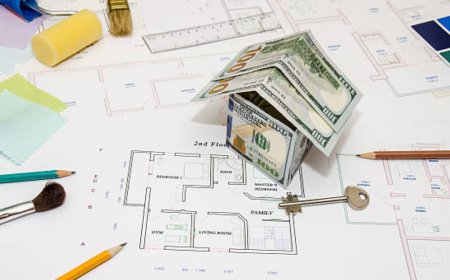The Impact of Dust, Bird Droppings, and Pollution on Solar Panel Efficiency

Solar panels are an important part of the drive toward renewable energy because they use the sun to make electricity for homes and businesses. They also cut down on the world's use of fossil fuels and carbon emissions. However, their performance rests on systems that are clean and well-maintained. Environmental pollutants, such as dust, bird droppings, and smog, can lower the efficiency of solar panels. However, owners can take steps to keep their panels working at their best.
Understanding Solar Panel Efficiency
Solar panels' efficiency is measured by how well they turn sunlight into electricity. High-efficiency panels make you less reliant on the power grid. This performance is affected by things like the quality of the solar cells, the angle at which they are installed, the weather, and the cleanliness of the surface. If dirt or other things get in the way of sunlight absorption, output and return on investment will go down.
The Role of Dust in Solar Panel Efficiency
Solar panels often have problems with dust building up over time in dry or windy places. Dust forms a barrier on the panel's surface that stops sunlight from spreading and energy from being produced. Studies show that dust can lower the efficiency of panels by 5 to 30 percent, depending on where they are located, how tilted they are, and how often they are cleaned.
The Effects of Bird Droppings on Solar Panels
Bird droppings, which contain uric acid, are a bigger threat than dust because they can cut into glass over time. They block sunlight, make shading uneven, and cause "hot spots" in solar panels. If they aren't cleaned, they harden and are harder to get rid of, which lowers efficiency even more.
Pollution and Its Impact on Solar Panel Performance
Cars, factories, and building sites pollute the air with particles like soot, ash, and chemicals. These settle on solar panels and form sticky layers that are harder to clean than dust. In places with a lot of pollution, panels might need to be cleaned every couple of weeks to work at their best. During the winter smog season in the US, solar energy production dropped by almost 20% because of rooftop solar panel cleaning.
Comparative Analysis of Different Environmental Factors
Pollution, dust, and bird droppings all have different effects on screens. Pollution changes depending on where it's found and what kind of business is there, and droppings happen quickly but are very harmful. Some places have more problems with dust, while coastal or urban areas have more problems with birds and smog. Pollen, dry dust, and seasonal soot can also affect efficiency.
Maintenance Strategies for Solar Panels
Homeowners must clean their solar panels regularly to keep them working properly. This can be done by gently brushing, rinsing with water, or using cleaning products that have been approved for use on panels. When you opt for residential solar panel cleaning, don't use strong chemicals. Instead, use soft brushes or microfiber cloths with distilled water. For bigger jobs or roofs that are hard to reach, you should hire a professional.
Technological Solutions to Minimize Impact
Modern solar panels have anti-soiling and hydrophobic coats to keep dust from sticking to them. More advanced panels can tilt to remove dust automatically. Large solar farms often use self-cleaning systems with water jets or robot cleaners. Monitoring real-time performance helps make maintenance plans more effective and stops energy loss.
Case Studies and Real-World Examples
After being cleaned once a week, solar farms in dry areas have seen their efficiency increase by 15 to 20 percent. People living in cities say that their output increased by more than 20% during the monsoon season rebound. Polluted metros show how important it is to clean up ahead of time, especially during peak smog seasons.
Solar panels need to be maintained to keep producing energy and saving the investment. Pollutants in the environment, such as dust and pollution, can harm technology and make it less effective. Solar panel owners can get better performance and more energy freedom by keeping their panels clean, using new technology, and being aware of environmental problems in their area.

































